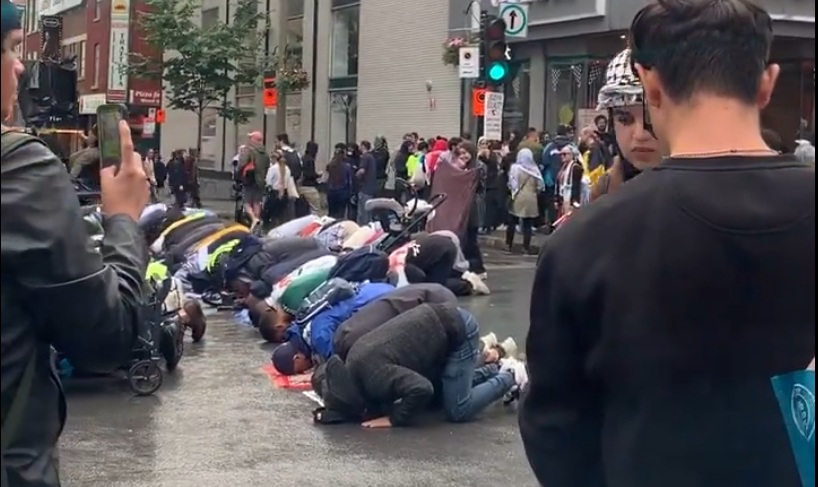
Quebec bans prayers in public places, sparks strong public reaction
- Interfaith
- August 29, 2025
- No Comment
Report by “Safarti Tarjuman” International News Desk
Toronto — Quebec’s plan to ban public prayer in streets and parks has triggered strong criticism from civil rights groups, who warn the move could erode religious freedom, equality, and democratic rights.
The proposal, announced by Secularism Minister Jean-François Roberge, comes after what officials described as a “proliferation of street prayer” in Montreal. The minister called it a “serious and sensitive issue” and confirmed that legislation will be introduced this fall.
The measure echoes earlier comments from Premier François Legault, who said visible prayers in public spaces contradict Quebec’s secular values.
“To see people praying in the street, in public parks — this is not something we want in Quebec. Prayer belongs in a church or a mosque, not in public,” Legault said.
The debate has intensified in recent months as Montreal4Palestine organized weekly demonstrations outside Notre-Dame Basilica, which included public prayers. These gatherings have sparked counterprotests, deepening divisions over religious expression in Quebec’s public spaces.
Legault’s Coalition Avenir Québec (CAQ) government has long championed strict secularism. In 2019, it passed the controversial Bill 21, which prohibits judges, teachers, police officers, and other public officials from wearing religious symbols while on duty.
Though Quebec’s Superior Court acknowledged the law infringes on freedom of religion, it was upheld after the province invoked the notwithstanding clause, a constitutional provision allowing governments to bypass rights protections.
Analysts say the new push to regulate public prayer could once again test the balance between secularism and fundamental freedoms.
Civil rights organizations warn the proposal risks stigmatizing religious minorities.
The Canadian Muslim Forum said the government should focus on “real social challenges” rather than policing personal faith practices.
> “This policy will stigmatize communities, fuel exclusion, and weaken Quebec’s social cohesion,” the group said in a statement.
The Canadian Civil Liberties Association (CCLA) argued that the ban would directly undermine freedom of religion, expression, and peaceful assembly.
“Suppressing peaceful religious expression under the guise of secularism marginalizes faith-based communities and erodes dignity and equality,” said Harini Sivalingam, CCLA’s director of equality programs.
The issue has also divided political leaders. Parti Québécois leader Paul St-Pierre Plamondon called public prayer an “appropriation of public space by religious fundamentalists” and pledged to consult his party members before finalizing their stance.
However, critics argue the law primarily targets Muslim communities. Former senator André Pratte noted that Catholics have prayed publicly for decades without facing restrictions.
“What is disturbing to some isn’t prayer itself — it’s Muslims praying. Just as Bill 21 was aimed at the headscarf, this move disproportionately affects one community,” Pratte wrote on X.
Analysts say the proposal could reignite long-standing tensions over secularism, with supporters framing it as a defense of Quebec’s identity, while opponents view it as state-led discrimination.
Thank you for reading! For comprehensive news coverage and exclusive stories, visit SafartiTarjuman.com




